It’s been six months since I launched SavvyRevenue. In my launch blog post I mentioned how I was craving getting back to the trenches working with Google Ads and PPC again.
All in all, it’s been everything I hoped it would be. The highs have been amazing, but the lows where you sit and scratch your head have been just as I expected as well.
The highs have been amazing, but the lows where you sit and scratch your head have been just as I expected as well.
In this blog post, I’ll go deeper into everything that has happened in the last six months. I’ll mention the amazing things we’ve done, but I’ll also include the doubt, the missteps, and all the other things that come with trying to build an agency.
I’ve been privileged. I built a six-figure business almost overnight. I know this isn’t the speed that most other agencies will get start, but I hope there are some learnings to everyone out there.
Even if you’re not trying to build an agency, you’ll still get insight into what goes on when you try to build something new.
Summary / TL;DR:
- My Original Thesis: Be Specific About Your Target Audience
- Original Thesis: Operate All Revenue-Driving Channels For Clients
- When To Hire The First Person In An Agency
- Saying No To clients
- Being Too Trigger-Happy With New Tools And Consultants
- Working Alone: Heaven Or Hell?
- Reflecting Back, What Went Well And What Can I Learn From? (jump to this if you just want the quick and dirty learnings)
- Introducing Filip Lindblom: The First Addition To The Savvy PPC Team
- Target For 2018: $600,000 In Revenue
My Original Thesis: Be Specific About Your Target Audience
One of the biggest things about SavvyRevenue is that we exclusively focus on mid-sized eCommerce stores that want to grow. This was by far a theoretical decision, meaning that I had actually never operated an agency that was this specialized before.
All the theory sounds super nice. By choosing a niche you’re able to appeal much better to your target market. Honestly, it’s been better than I could have hoped for. Many things that I hadn’t thought of before just makes much more sense when you have a very specific target market.
One client actually said “Honestly, Andrew. I knew I wanted to hire you before I got on this call. Only if you said something absolutely stupid would I not hire you. I read everything on your site and I agree across the board. “
This is great.
BUT it’s super hard when you get messages like these:
Hey Andrew, I have a super interesting case for PPC management. What’s the best way to put you in contact?
I didn’t see the Skype immediately, so 15 minutes later this message came in:
Ahh, sorry. I just read further on your website and I’ll find someone else that is open to lead generation clients.
Then, I cry a little bit, but when the next message ticks in I regain my focus:
But I LOVE your website. I really think it’s smart to focus on a single area. I’ll definitely send eCommerce prospects your way.
Aren’t You Halting Your Growth?
Honestly, yes – I am, at this point. With the amount of leads I’ve had and the amount of leads I haven’t had due to my targeting on the website, over the first six months, I think I could easily have had double the clients if I had taken “everyone”.
What I’m losing in clients right now, I make up in processes and efficiency.
What I’m losing in clients right now, I make up in processes and efficiency. I don’t have to necessarily learn every single client’s business from scratch. They’re all eCommerce.
I Wouldn’t Change It For The World
But honestly, I don’t want to change anything. Having clients in the same industry come in makes it so much easier for me to work with them. I can quickly assess the issues, because:
The processes are the same
The tools are the same (anyone remember bulk discounts?)
The communication patterns are the same
The needs are the same
The tracking/analytics setups are the same
The remarketing efforts are the same (largely)
The Comparison Shopping Engines are the same
Yes, there are differences and nuances to each client, but they’re much easier to understand when I already have the big picture nailed down.
Original Thesis: Operate All Revenue-Driving Channels For Clients
In my launch blog post, I proclaimed that we wanted to go in the direction of managing PPC, Email, Conversion Optimization, Facebook and more.
I’ve backtracked on a couple of these. Primarily because there is enough work to be done just within PPC, but also because realizing that mastering more disciplines than just Paid Search means we have to be more people. We can’t be true experts at multiple marketing channels when we’re only two people. At least not in my book.
In 2018, we’ll therefore focus on two areas within SavvyRevenue:
- Paid Search (Google Ads/Bing)
- Amazon Ads
These areas are chosen for two reasons:
- Paid Search is our absolute specialty. As a smaller agency, we need to thrive on what we’re really good at. Paid Search is it.
- Amazon Ads is severely underserved when it comes to quality agencies. While agencies flock to Facebook, Amazon is being ignored. We see Amazon Ads as a perfect supplement to go with Paid Search.
Instead of trying to master Facebook, email, conversion optimization, and other areas at the same time as trying to grow an agency, we’ll partner with other specialist agencies for these areas. I’ve already started the talks with a kickass Facebook agency and another excellent email agency. More news on this in January/February!
You Shouldn’t Open An eCommerce-Focused Agency In May, Or Should You?
Originally, I wanted to write a blog post about the first three months of being in business, but I never got around to it. In the first outline for this post I had added that you shouldn’t open an eCommerce focused agency in May, but have now added , or should you?
The reasons why I originally wrote that you shouldn’t start an eCommerce Agency in May was because almost all clients saw a decrease in May, June, and July. So essentially, I was taking over on clients that were all heading into their lowest season of the year.
This resulted almost every single client having some sort of decrease in revenue during these months compared to the first months of the years. Yikes!
The Impact Of Having Savvy Clients
In hindsight, it wasn’t a bad time to start an agency. Because we were going into a low-season then my clients was less risk-averse. If we were a bad fit, then they would have suffered less of an impact on their bottom-line than if they had hired us right before their high-season. They got to see how I worked, how I approaching building an account and whether we got along as people.
All the clients also mentioned to me that we were going into their low-season, so there were no unreal expectations either. Afterall, that’s what it all comes down to.
I hadn’t told them I would double their business in a couple of months.
They hadn’t said they wanted to double their business in those months.
They were savvy.
When To Hire The First Person In An Agency
I proudly announced back in June that I could see the need to hire the first Junior PPC manager in SavvyRevenue immediately
So why did it take an additional five months to get the first person on board?
Seeing the need to hire an employee and knowing that you are ready for that employee is an important distinction.
Seeing the need to hire an employee and knowing that you are ready for that employee is an important distinction. Many mistakenly think that they will hire someone and their day will become easier.
That’s rarely the case, if ever.
First and foremost, you need to make sure you’re hiring the right role.
Then you need to make sure that you get the right person onboard.
Then you need to make sure that you’re actually ready:
Revenue: Do you have enough revenue to confidently cover the new employee?
Time: Do you really have enough time to get the person started? Even if you hire a rockstar, you need to get them situated in your agency, introduce to your clients and at least count on 30-60 minutes a day for check-ins in the beginning once the initial onboarding has ended.
WHO To Hire First
For me, this was something where I actually went a bit against the grain. Often, people like to recommend hiring for roles that complement you, so you can focus more on doing what you’re good at.
The problem with that is if I hired someone to do Sales, then that would just mean I’d have to handle more accounts.
What I did instead is that I looked at where the bottleneck in my business was. Upon looking into it, it was 100% on how many accounts I could manage. I had/have hit my limit at ~13 clients. This would be an OK number if that was all I did, but not with all the other responsibilities.
I then reviewed the rest of the options I had for relieving this bottleneck. In my specific situation, I had the choice between hiring for these four roles:
- The Junior to help out
- The Experienced PPC manager that can take over clients
- Admin help that could free up my time to work on clients and sales
- A “Salesperson” that would handle new sales and client communication, freeing me up to work on the marketing and fulfillment of the agency
Let me break down my thinking on each role:
The Junior to help out
Pros
- Low cost
- Able to hand off “easy”, repetitive tasks I’d like to not handle anymore
Cons
- Needs to be trained (difficult to do remotely)
- Would take more time upfront
- Person might feel slighted when I hired a more experienced person to be his or her manager in the future
- Needs a lot of handholding
- Doesn’t necessarily free up time for me
Why I didn’t go with a Junior
Honestly, I didn’t feel that it was realistic to hire a Junior PPC manager. If I had had an office in Copenhagen where I sat every day and the person would sit right next to me while I trained him/her, then I would have been more warm to the idea.
Subsequently, a Junior is not what I need. At the current time, I’m stilling working on the exact processes for each client. I therefore don’t have the processes ready for someone to just follow.
My fear was that I would be “stuck” with managing communication for all clients and still having to oversee everything. The time saved would be minimal at this stage.
The Experienced PPC Manager
Pros
- Can take over on clients quickly and deliver high performance
- Can work independently
- Can handle calls and make strategic decision alone
- Will provide a useful second pair of eyes on accounts
- Enables the agency to grow
- Enables that we can hire the Junior personnel in 2018
Cons
- Expensive
- The cost of not working out is huge
- Might not see eye-to-eye on crucial PPC strategies/tactics
Why I Chose the Experienced PPC Manager
Honestly, it was a no-brainer with the direction I wanted to take.
I want to build the best, most-elite PPC agency out there. I can’t do that alone.
If one additional larger client had wanted to work with us in Q4-2017, then I would have had to say no. Even if I hired a Junior person or a Sales person, then I wouldn’t have had the bandwidth to take on a large client without severely compromising existing clients. That’s simply a no-go for an agency that’s trying to move up the ladder and work on the most challenging, rewarding search cases out there.
I’ve spent a section below announcing Filip as the first hire in SavvyRevenue, so I will not go into detail here. But relevant for my choice was the fact that that Filip complements me incredibly well.
He’s a talented PPC manager in his own right, but being a native Swedish speaker and having worked on very large account setups in the past is simply just a huge plus.
He’ll immediately take over on the three accounts we run in Sweden. I’ve done as well as I can, but I don’t kid myself with thinking that I’m doing better than a native speaker.
At the same time, he’ll be essential to building out the internal structure for reporting and building the processes for working with large-scale PPC campaigns.
How To Hire The First Employee in an Agency
The first hire is always special, not just because he’s your first hire, but it’s also the time to start changing the way you work.
I talk quite a bit on the phone with other agency owners, freelancers, and people in Search generally. Some clients call as well, but surprisingly few. But I’m not responsible for anyone when it’s just me.I’m not accountable for anyone but me.
Well, that just changed and that’s something you should be ready for. Everything from the practical things like access into accounts to explaining what you want to achieve is different.
I’m big on written documentation. Many things can be lost in translation when you’re “just talking”. You never know whether the other person‘s mind is wandering, or if he/she is tuning you out. There’s nothing malicious about it; we all do it. When you write down the most important things, then you make sure they can’t be misunderstood. In my opening documents to Filip, I’ve included:
- Communication
- Workflows
- Tools
- Client Briefs (extensive intros to each client, account history, targets, learnings, etc.)
- Pricing
- Agency mindset/approach
- My expectations
Particularly the last one is crucial to make sure you get right.
You can quickly run into two scenarios with new employees:
- They underwhelm you because they don’t do enough
- They try to overdo it and by doing so they stress themselves unnecessarily
Neither one will result in a long-term employee. Setting the right expectations from the get-go is crucial. In our case, the expectation is that Filip comes in and does not rock the boat. We’re going in the Christmas season and the accounts are well-managed. There’s no need to make big changes to the way that the accounts have been set up.
The Choice Between Solopreneurship Or Building An Agency
I had an interesting conversation with a friend of mine a couple of months back. He’s on his way to building a very good living for himself working as a PPC consultant and as we were discussing the PPC landscape, he posed the following question to me:
Andrew, why would you want to go beyond just yourself if you’re already making more than a $150,000 a year working alone?
To be honest, it’s a good question. Why would anyone who basically makes enough to live comfortably venture out and take additional risks, headaches, stress in an effort to get more?
I attribute it to three things:
1) I like being challenged. If I don’t have anyone working with me I tend to grow stagnant. I need someone sitting with me saying: “Uhm, Andrew – that’s stupid”.
2) I want to enjoy myself. Working as a freelancer means you’re only getting paid whenever you work. That has never appealed to me. If I want to take Friday off to go on an extended weekend to the beach, I want to be able to do that. If I want to indulge myself in a new project, I want to be able to do that too. I want to be able to do whatever I want, whenever I want and if I’m tied down to only getting paid when I’m actually working on accounts, then I will not be happy.
3) Combining resources means I can make a bigger impact. I’ve found that I love routine. This has been known to me for a very long time; I urge for routine. At the same time I need to do new things. Combining these two ends of the spectrum has long been a conundrum to me.
But, I think I’ve figured it out.
For me, it’s important to feel momentum, to feel like I’m moving forward. Whether it’s with new clients coming to the business, or expanding an existing client’s business, or developing new tools, or developing new ways of doing things, I love the forward momentum that comes from that.
When you’re by yourself, it’s very hard to invest in new tools or take time away to really refine the way you work.
When you’re by yourself, it’s very hard to invest in new tools or take time away to really refine the way you work. Every day of the week you don’t spend working for clients is ~4.8% of your paycheck.
By having revenue north of a million a year, or more, and you can start investing in the business and setting the new standard for how PPC need to be done. I like that and that’s what I want.
Saying No To Clients
Despite all of the good things that have come from choosing a niche for SavvyRevenue, saying no to clients has been one of the toughest things I’ve ever done.
The issue comes from two things:
- I know I can help the businesses that reach out to me
- At times I had the space, so what could it hurt taking them in?
Especially in August and September, I had some additional space to take on clients and there were two specific leads that reached out. They didn’t fit the mold in two aspects though:
One was lead generation and the other didn’t seem like it had a strong business (downward trend through several years).
Set a pricing policy.
What helped me still say no to these clients was something I learned in the podcast, 2Bobs.com. Set a pricing policy. Even though it’s just me, I have pricing policy and it states that we have a minimum monthly retainer at $2,050. I forced myself to adhere to this and put it on the table whenever I didn’t feel comfortable with outright saying no. The $2,050 minimum usually did the trick, though!
For certain clients where I deem that the initial workload isn’t too bad and the potential for growth is high, I lower it the fee to $1,600 for the first three months. I’m still pending the results from the first three clients where I’ve done this to find out if it’s a worthwhile tactic. I’ll keep you posted in a future blog as to whether this had paid off.
Another solution has been to find two very talented freelancers who are happy to take the smaller clients and do an excellent job for them. I happily refer them and many of the smaller clients have reported back that they’ve had great results. Win Win Win.
Being Too Trigger-Happy With New Tools And Consultants
One of my big weaknesses is tools. I love software. When I first started SavvyRevenue, I urged myself to focus on not doing everything myself.
I didn’t want to translate blog posts into danish.
I didn’t want to repurpose my own blog posts.
I didn’t want to do my own linkbuilding.
I didn’t want to do my own admin work.
I only wanted the best of the best.
I didn’t want to do my own XYZ.
On top of that, I quickly also added new tools and memberships to mastermind groups to my list of things to pay for. All of a sudden, I was looking at $8,000 in monthly expenses to tools, consultants, and other “fixed” expenses. Well, that was stupid. I got too trigger happy.
All of this wasn’t really an issue until two clients started paying late. This then caused me to have a temporary cashflow issue. REALLY?! A cashflow issue in a business with less than $300k in annual revenue and just “one” employee. So, I put myself on a budget and hired a competent person to build the budget for 2018. We’re now on track and have budgeted with the opportunities, plans, and growth for the next year.
Working Alone: Heaven Or Hell?
I love having my daughters around. When growth at White Shark Media was at its highest, I would see them once a day (at best). At certain times, I would actually go days without seeing my youngest. She wouldn’t be up when I left for the office at 5am, and when I came home at 8pm she would be sleeping. This wasn’t how I wanted to live my life.
Now I get the privilege to see them multiple times a day. My youngest daughter typically hangs out in my office for a few hours after kindergarten.
You may think this would affect my ability to work, but in fact, my productivity has been through the roof. Coming from an open-office environment (where I literally didn’t have a door) with ~80 people on the floor to just being me in my own office has been mind-blowing. It was no longer other people putting constraints on how much I could get done, but instead for how long I could concentrate on a single task before I lost it.
So far, so good.
One thing I noticed that was very different from my White Shark Media days was that I found myself having an automatic “slouch” period after lunch. When working from home, I would just sit at the desk not really doing anything after lunch. After about 45 minutes, I would jolt myself awake and force myself to do something.
It didn’t feel very effective, so I implemented a walk after lunch every day. It’s roughly a 45-minute walk where I will listen to a podcast or audiobook while pondering some of the challenges I’m facing. I love it! It’s a great way of getting the body moving in the middle of the day and I feel energized after the walk.
I Miss The Interaction With Coworkers, But I Found Something New
This is by far the biggest part of working alone: not having anyone to interact with throughout the day.
I used to like to “shoot the breeze” so to speak. I’ve found that talking with other agency owners or even freelancers about challenges or just our day to day helps a lot. Even though at times these talks take two or even three hours away from the day, I always walk away from them with a lot more motivation.
I’ve also found the need to socialize more at night. I didn’t have that need when at WSM and I was around people nonstop.
Travel Needs To Be Prioritized
Due to my family and I moving to a new house, me starting a new business, and generally not having the time or additional funds to travel, I didn’t go to any conferences in the second half of the year in 2017. This was a big blow for me personally.
I would always have more energy and motivation when I came home. With the new budget, I’ve changed this, so I’m able to either go visit the office in Denmark, attend business events, and even travel to conferences where I’ll be speaking. I’ve always felt it was important to travel to conferences and meet new people. Having had only one conference in 2017, I was reminded of how important it is for me.
I love taking three or four extra days when going to a conference to just explore the new city and getting some time to work from a new location. The combination of being around a lot of people at the conference, exploring local CrossFit gyms, and the total quiet at night makes for the perfect conditions for thinking strategic. I expect to have ~5 trips in 2018 depending on how many speaking opportunities I end up getting.
Imposter Syndrome, Or Whatever It’s Called When You Feel You Should Do More
I’ve been told on more than one occasion that I’m very competitive. I like to call it “ambitious,” as it sounds nicer and more accurate.
On SavvyRevenue.com, we boast about growing PPC programs for eCommerce stores. Hence, the clients that hire us usually focus on growth.
Due to us being paid based on a percentage of ad spend with a performance kicker, it means that for someone like me, there is always more to be done. Finding the exact balance for what is “enough” in these cases have been very tough.A solution to this is to get better at setting internal targets for the clients. That way, I know that if we hit XYZ, then we will have done our part and I can relax.
Reflecting Back, What Went Well And What Can I Learn From?
What Went Well
Client volume and the average fee was almost right on the money. I feel that I’ve ended with a good mix of high fees and “normal fees”. If I had taken too many more of the high fee clients, then I would have stayed at ~5 clients where if one client leaves, I’d be in trouble.
Performance for clients was excellent. I have happy clients across the board. I attribute this to doing good work, but also only taking on the right clients where I know I can make a difference.
I maintained a consistent blogging schedule throughout the last six months. I’m happy with this as it was the first time since 2015 that I was back at writing. I was worried that client work and other responsibilities would eat up the time I needed to invest in content.
I think the main reason why I was able to maintain the blogging schedule was because of where I want to be. I could stop writing content now and just work off referrals. I think it would be a pretty good business.But the goal is to be known as an elite PPC agency. And that can’t happen without content. We can’t get the clients we want without content.
I have already booked two speaking gigs for 2018. I’m extremely happy that without much prodding I was able to get two speaking opportunities in 2018. One is MarketingCamp in Denmark where I’ve been before and the other is ADWorld in Italy. The goal is to book one or two in the States, as well.
What I Should Do Better In 2018
I didn’t have an adequate work-life harmony. Often I would feel bad about something I was missing or could do more of (work-wise). This is by far a luxury problem, as I didn’t work 100 hours a week or anything near, more around the 55-hour mark on average. I want to get it down to 45 hours a week comfortably.
Solution: I hired a business coach to help set up systems and keep me accountable towards not just working more, but working smart.
Content Marketing has started well, but I need to get better at promotion. A lot of the blog posts I’ve written can become even better with more contributions.
Solution: I want to hire someone to solely handle the promotion and “beautifying” of blog posts.
Hiring writers is not plug and play. I tried three different services to try to find a way of repurposing blog posts. Unfortunately, the quality varied a lot from piece to piece even when using the same writer.
Solution: Spend more time collaborating with just one writer on very specific pieces.
Guest posting on SEJ was a bust. I respect the team at SEJ a lot, but for the six blog posts I wrote in 2017, I received roughly three referral visitors.
In comparison, my WordStream post on Black Friday PPC was one of their top three posts that month and I received a lot of referral traffic and subscribers.
Solution: In 2018, I’ll focus my guest posting on more relevant sites with a focus on either PPC or eCommerce.
I handled my finances carelessly. I got too trigger happy with tools and consultants, which caused a temporary cash-flow issue when two clients got behind on their payments.
Solution: I hired an “external CFO” to help set a budget for next year and ensure I adhere to it vigorously.Yes, I see the irony in hiring a consultant to help me with my problem of hiring too many consultants! 🙂
Reporting structures need to be better. I’m a perfectionist by heart. If I don’t feel something is perfect, then I often hold back on sending it out. This especially goes with reports. I need to find the perfect reporting platform. I’ve used Optmyzr for now, but I’m not completely satisfied with the look of it.
Solution: I need to stop worrying about the design and just send out the reports. It’s the numbers that matter anyways.
Introducing Filip Lindblom: The First Addition To The Savvy PPC Team
During a lunch with a friend of mine back in July, I started talking about the need for someone to come into the business and help me with the Swedish accounts. Our Norwegian accounts are doing well as it’s not a far-stretch from Danish to Norwegian.
Swedish is a bit different, though. It’s like US-English meets Wales-English, completely incomprehensible 🙂
Filip is a Swedish citizen, but has been living in Denmark for a number of years. He’s worked at AutoButler within the marketing dept. and in his last position as Senior Account Strategist in Upjective Digital.
He has worked with large clients such as Hungry (three countries in Europe), Lensway (Sweden + across Scandinavia), Miinto (large fashion startup in Europe) and many more. He brings a ton of experience to the table, and best of all: He’s a purebred PPC manager.
Filip is very nifty with Excel, scripts, and automation. These skills complement my own incredibly well.
With Filip we take two important steps:
- We enhance our abilities to service the Swedish market, which is essential for many of our larger PPC clients in Scandinavia
- We get more abilities to build out large-scale PPC management
All in all, I’m super happy with the addition of Filip to the Savvy team.
Target For 2018: $600,000 In Revenue
We hit $150,000 in revenue for 2017 based off seven months of being operational. That results in just about $256,000 in annualized revenue depending on how you look at it.
I’d like to implement a careful growth target for 2018 of doubling the revenue. I’m sure we can do more, but I want to make sure we take the time to really nail down our processes and build a tool or two, so when we do step on the throttle, then we won’t have to take a breather to cope with the faster growth.
This needs to be achieved while maintaining a healthy profit margin after I’ve been paid my salary.
Growing to $600,000 in revenue means we’ll add two or three new people throughout the year. If you’re interested in joining SavvyRevenue in either a capacity of PPC Manager (+3 years experience with eCommerce PPC) or Junior (+1 year of Experience in eCommerce) I’d love to hear from you.
If you like getting these updates on the agency-side of SavvyRevenue, I’d love to hear from you in the comments.


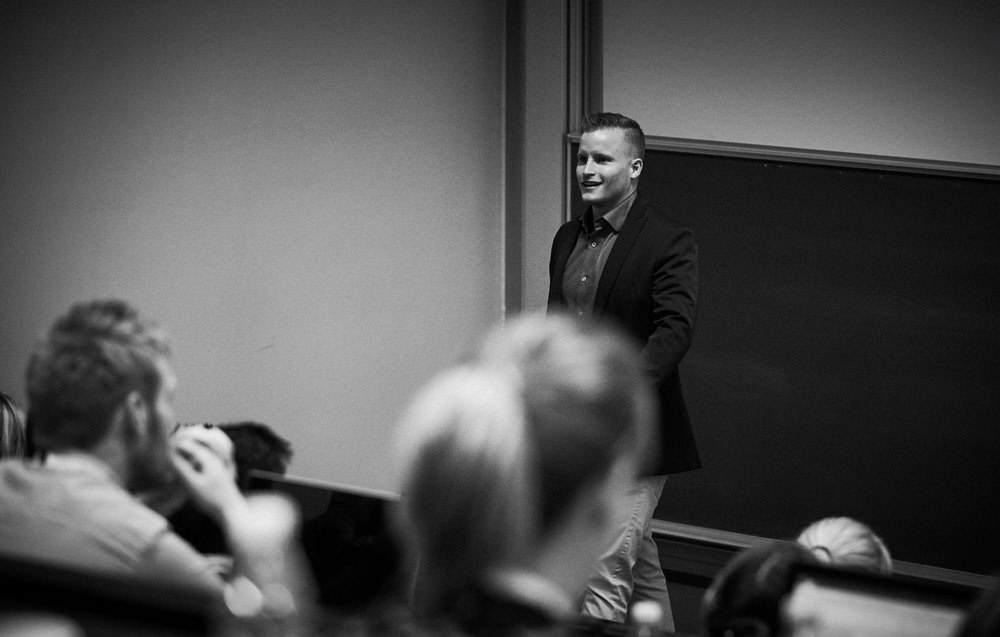
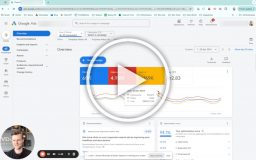
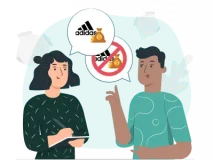
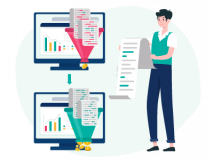
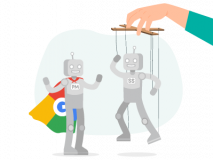

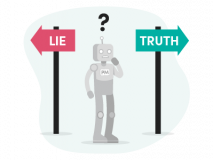
20 thoughts on “Starting a New PPC Agency: Six months, $256,000 ARR and 24 Key Learnings Later”
Andrew, Excellent write up on the savvy story so far.. Yes definitely would like to hear agency side of Savvy revenue in future.
Thank you, Andrew, for sharing the insights from your experience. I love your approach to concentrating one segment and reaping the benefits. Please let me know why you prefer e-commerce over the lead generation model? Thank you.
Thanks, Nithin.
Main reason why I chose eCommerce is because once you manage campaigns for larger stores it becomes as much about structure and organization as about “pure” AdWords skills. I’m very good an organizing accounts, so it plays to my strengths.
Also, I like that there a better ability to track the performance. Yes, there are still issues, but it’s easier to track than leads.
Last, then I like working with Shopping campaigns and feed optimization. So all in all, eCommerce pulled me in 🙂
Great post. A agency owner colleague recommended this article. Many familiar issues and a nice idea to write everything down to help organise use your thoughts.
I’ve been running my agency for 11 years and only decided to niche about 13 months ago. Amazing difference. Happy to compare notes.
Definitely sign me up for further updates!
That’s excellent! I’m happy you liked it.
I really enjoy writing things down myself. It helps clear my own thoughts, or set structure in something that kind of just have an opinion about.
Happy to hear you’ve chosen to niche down. There are so many advantages that I can’t begin to get through them all 🙂
The plan is quarterly updates throughout 2018! I hope you’ll enjoy them.
Really enjoyed reading this article Andrew. Trying to grow from being a freelancer to an agency in the past year has been a challenge and I can really related to almost everything you wrote (my agency specialized in FB ads for SaaS Startups). Would love to connect to help each other with continued growth.
BTW, I found your post on Zest.is
Cheers!
Aaron
Very happy to hear that, Aaron!
Let’s connect. I’ve just sent you an email.
Great post! I’ve been ppc freelancing for 2 years which has been running at a steady pace, but in the last 6 months new clients have been coming in thick and fast. It’s now time for me to start working on efficiencies and scaling up. My business has naturally moved into the ecomm direction, which has been great. I much prefer it to lead gen. This post (and all your other posts) is so relevant to me, I found it super valuable. Will keep an eye out for more agency related posts! Thank you!
Great post, Andrew!
Huge fan of the transparency and love the way you’re growing your agency.
I recently started a pure PPC focused agency. Things got muddy with clients at my other agency. We did too much and focused on too many things. Cleaned it all up! 🙂
Would love to connect with you.
Best!
Darren
Thanks, Darren! Really appreciate the kind words. I just reached out on LinkedIn as well 🙂
Kudos! Nice article. Informative and simple. If video, was there, still more informative and understandable.
Excellent article, Its very useful for me. Thanks for sharing.
Great contents from Andrew, I like the way you put the article – very informative.
Highly inspirational and practical… Andrew your points well written and extremely practical for a new agency to concentrate on.. would like more tips in future
Great content.. You have put it very well.. Really felt like a worth to read.
Thanks for sharing, invest in right MLM software plan for network marketing business
Thanks for sharing, enhance real time productivity with automated time tracking software
Great blog thanks for the informative content.
Very informative and useful content. Thanks for sharing such great article!
Thanks for the best post, we have ever seen. Very clear and simple. Keep doing this. Great Information you have shared.